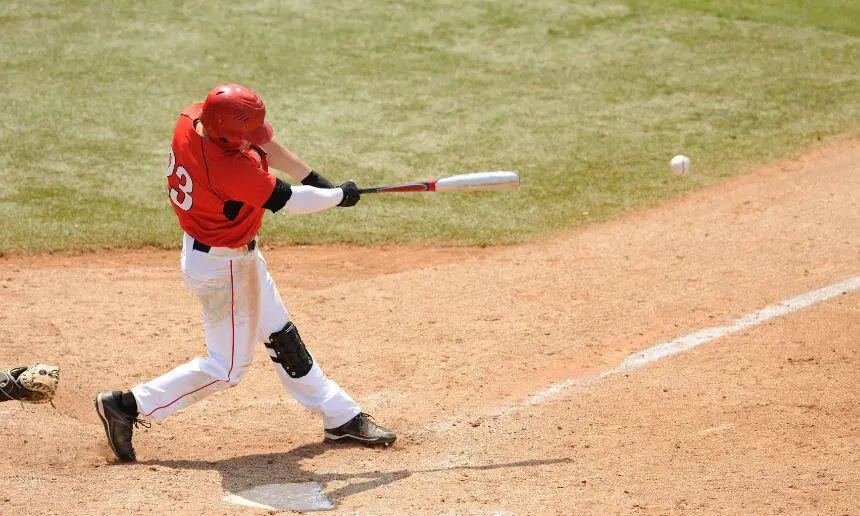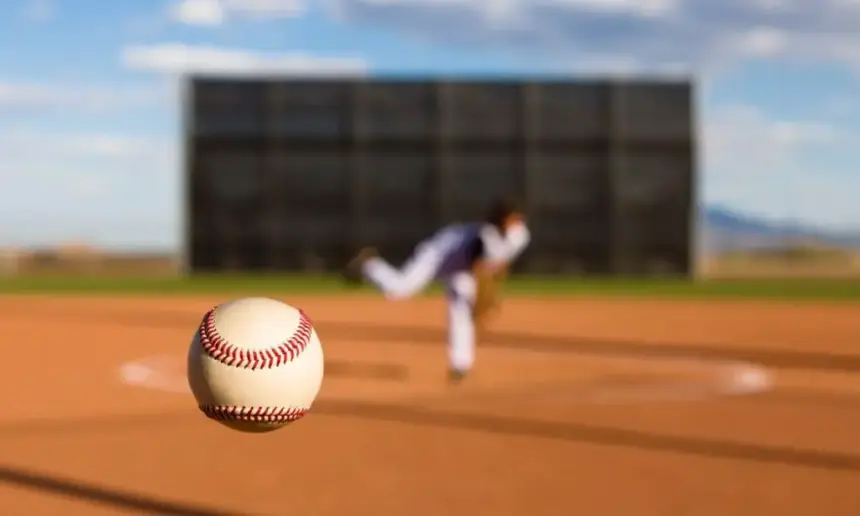The 5 Basic Skills In Baseball Explained
We’re often left speechless when watching baseball pros play the game at the highest possible level.
Their arsenal of skills and superb athletic ability which come as a result of a ton of effort put in and, obviously, the talent for the game, is nothing short of amazing.
However, the basic building blocks of the game are the same for both All-Stars and random rec league players
The basic skills in baseball are the foundation for any player when building their game. In fact, we often judge players by how good they are in each of these basic skills.
Of course, some will be better in one aspect of the game, some in the other, while only the rare will master every one of them.
Development of each skill takes a tremendous amount of work, but without them, you can hardly count on any success on the field.
Table of Contents
5 Basic Skills in Baseball
Below is the list of five basic baseball skills, which include both offensive and defensive tools needed for success.
If a player excels in all five of these areas of the game, it usually means that he has superstar potential.
Needless to say, this rarely happens and there are plenty of legendary players, Hall of Famers even, who were below average in one of these game tools.
Still, every player should strive to be at least competent in every basic baseball facet.
No matter how much you can contribute on one end of the field and one area of the game, the total lack of a certain skill may still cost your team a win.
Hitting

For most players, especially younger ones, hitting is the most enjoyable part of the baseball game.
Of course, it’s a skill that doesn’t come easy and can be very difficult to learn and master, maybe even more than with other basic skills.
Hitting a round ball with a round bat when you only have a split second of time to react is pretty hard.
To become a consistently good batter, a player needs almost perfect hand-eye coordination, great timing, and plenty of confidence.
So, spending a lot of time at batting practices is a must.
Repetition and doing the same steps over and over again is the key to developing the muscle memory needed for hitting.
Even a proper stance at a home plate takes some learning.
The batter must be balanced, and transfer all his strength into driving their hands through the ball and gaining the momentum behind the swing.
Baserunning

The best way to put pressure on the defense is sharp and aggressive baserunning. So being a good baserunner is one of the most important skills a ball player can possess.
Still, this is not a skill that everyone can get good at, as it requires a level of natural athletic ability. However, even players that are not naturally quick can become competent baserunners.
A high baseball IQ and the ability to read the current situation on the field is also a crucial component of baserunning.
This includes being at all times aware of the number of outs and the opposing team’s defensive placements.
In addition, a good baserunner knows of the skill level of the upcoming batters and the arm strength of the opposing fielders.
While they will listen to the coach’s advice on base paths, the final decision on whether to stop or run lies with the baserunner himself.
Fielding

Good fielding is often the key to winning a game as it makes it tough for the opponents to score runs and install extra confidence into pitchers and catchers.
Besides catching and throwing, playing on defense also involves anything a player does while waiting on a ball, getting a hold of it, or moving it forward.
With plenty of practice, players can gain an understanding of how to field a ball that’s hit along the ground or in the air and where it’s best to throw the ball.
Good fielding takes athleticism, great timing and coordination, aggressiveness, and anticipation,
When fielding a ground ball, a defensive player must get to the field spot in a hurry, get in front of the ball, and catch it.
Fielding fly balls also requires a similar amount of skill. As the movement of the ball is rather unpredictable, none of this is easy.
Throwing

While throwing may seem rather easy to someone who’s never played baseball, it’s far from that. Before the throwing motion even starts, it is necessary to first place the ball into your better hand.
You have to extend your middle finger and forefinger on top of the ball, and thumb beneath it to get a solid grip and control that will allow for the precise and distant throw.
The ball then is brought up, and the arm is carried forward while stepping onward with the opposing foot.
Then, you snap your wrist to propel the ball towards the desired target. To be able to throw well, players must possess arm strength, timing, and balance.
In addition to adding distance to the throw, strength and proper technique are important because they help prevent injuries.
The shoulder especially is a very delicate part of the body, and it’s under a lot of strain during the throwing motion.
Catching

To be able to throw the ball the way you want it, you first need to properly catch it. Plus, a good catching technique is another thing that can keep you from getting hurt.
A good catching skill is a must for any player on defense, as it can swing a play in one or the other direction.
Often, the catching mistake can decide the whole outcome of the game.
A properly caught ball allows you to move it forward as quickly as possible and throw out the opposing baserunner as he looks to get on the next base.
Catching involves a couple of different skills. Firstly, good hand-eye coordination and the ability to focus on the ball.
A good catcher should also have great reflexes, as he has to react in a split second. Plus, to be in a position to catch the ball, a catcher needs to be fairly fast.
Conclusion
The quality of a baseball player is mainly judged by how many basic skills he has mastered.
Even players known for strengths in one area should at least be decent in others, as they’ll most likely be in a position to employ all of them during the game.
Furthermore, only when those basic skills are added to a player’s arsenal, they can work on some of the more advanced playing techniques.
In baseball, there are no shortcuts to greatness.
Therefore, it’s good to get a firm hold of fundamentals as soon as possible, so you can be able to develop your game further.
This is why, coaching in younger age groups is so important, as this is where the basics of the game are learned.
Numerous repetitions and hard work on the practice field may sometimes feel dull, but there’s no other way to master basic baseball skills.




